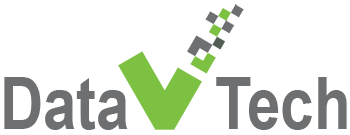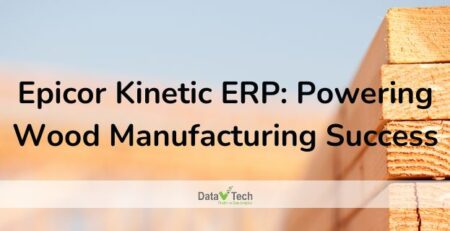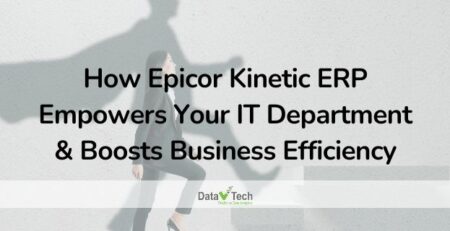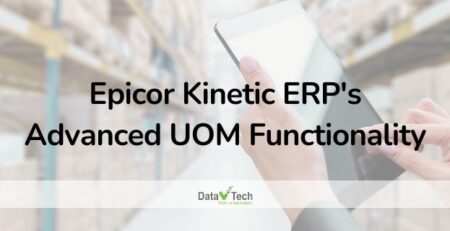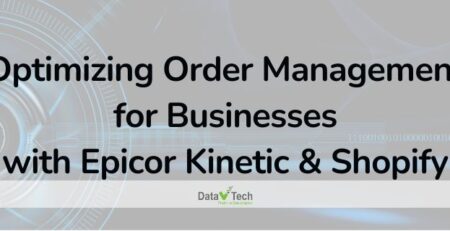Since ERP is an inevitable trend in 2023, many companies are searching for their solution. It is challenging to narrow down numerous options worldwide and select a robust, industry-specific, customizable ERP system to meet your enterprise’s needs. To facilitate your preparation for digitalization, here is our suggestion for 5 top manufacturing ERP systems for businesses of various sizes:
SAP Hana
Pros
- Real-time analytics: SAP HANA’s real-time analytics enable manufacturing businesses to make faster, data-driven decisions.
- Integration: Integrating multiple SAP applications and third-party software into SAP HANA, such as MES, is possible. Such attempts then allow seamless data sharing and visibility improvement within the enterprise.
- Scalability: SAP HANA’s strength is supporting large-sized businesses to grow and adapt to changing market conditions.
- Advanced functionality: SAP HANA offers a range of advanced functionality, such as predictive maintenance and quality control, that can help manufacturing businesses optimize their processes and reduce downtime.
Cons
- Complexity: It requires significant expertise and resources to implement, configure, and maintain SAP HANA. Thus, users might experience a steep learning curve, and productivity might be impacted in the short term.
- Cost: SAP HANA can be expensive to implement, maintain, and expand, especially if you require customizations or integrations with other systems.
- Security: As with any cloud-based system, there are potential security risks associated with SAP HANA. Implementing appropriate security measures to protect sensitive data and prevent unauthorized access is essential.
- Support: Depending on your location and the support you require, it may be difficult to access reliable and timely support for SAP HANA. This can impact your ability to resolve issues quickly and keep your system running smoothly.
Oracle
Pros
- Comprehensive functionality: Oracle offers many features, including inventory management, production planning, supply chain management, and financial management, allowing you to manage all aspects of your manufacturing operations from a single platform.
- Scalability: Like SAP HANA, Oracle supports your strategic expansion.
- Integration: Oracle can integrate with other Oracle applications and third-party software, allowing seamless data sharing and improved visibility across the supply chain.
- Analytics and reporting: Oracle provides robust analytics and reporting capabilities, allowing you to gain insights into your operations and make data-driven decisions.
Cons
- Complexity: Oracle is a complex system that requires significant expertise and resources to implement, configure, and maintain. It might not facilitate users’ learning process and can probably impact the enterprise’s productivity.
- Cost: Oracle’s deployment, maintenance, customization, and integration costs can be high, especially when you need additional features or functionality.
- Support: Oracle’s customer support sometimes takes time and is unreliable, depending on your location and the problems you must solve.
- Customization: It is vital to remember that Oracle’s customization can be costly, time-consuming, and impact the system’s overall reliability and stability.
Microsoft Dynamics
Pros
- Integration: Microsoft Dynamics can easily integrate with other Microsoft applications, such as Microsoft Office, SharePoint, and third-party software.
- Ease of use: Microsoft Dynamics has a familiar user interface and can be easy to learn for users already familiar with Microsoft products.
- Scalability: Microsoft Dynamics is highly scalable and can support manufacturing businesses of all sizes, making it a suitable solution for companies that plan to grow and expand over time.
- Customization: Microsoft Dynamics offers a range of customization options, allowing manufacturing businesses to tailor the software to their specific needs and processes.
Cons
- Complexity: Like any ERP system, Microsoft Dynamics can be complex and require significant expertise and resources to implement, configure, and maintain. Such complexity might affect users’ learning curve and short-term productivity negatively.
- Integration Challenges: Integrating this solution with non-Microsoft software can be challenging and require additional development resources. This adjustment can result in additional costs and time spent on integration.
- Limited Industry-specific Functionality: Microsoft Dynamics may lack certain industry-specific functionality required in manufacturing. You could then need additional customizations or integration with third-party software, resulting in additional costs and resources.
- Slow Response Time: Depending on the size of your data and the complexity of your operations, you may experience slow response times when using Microsoft Dynamics. The related user experience and productivity might not always meet expectations.
Sage
Pros
- Customizable: Sage ERP is highly customizable, meaning manufacturers can tailor the system to their specific needs, including unique workflows, production processes, and other requirements.
- Scalable: Sage ERP is scalable, making it suitable for manufacturers of all sizes.
- Comprehensive: Sage ERP offers extensive functionality that covers all key business processes for manufacturing, including production planning, scheduling, inventory management, procurement, sales, and financial management.
- User-friendly: Sage ERP has a user-friendly interface that is easy to navigate and use, making it easier for employees to get up to speed quickly.
- Affordable: Sage ERP is often more affordable than other ERP solutions, making it a good choice for smaller manufacturers on a tight budget.
Cons
- Complexity: Sage ERP is similar to the systems mentioned earlier in this regard.
- Cost: Though Sage ERP’s pricing might seem lower than other systems, its installment and other additional services, such as customization, can be expensive.
- Integration: Sage ERP may not integrate seamlessly with your existing systems, such as your CRM or supply chain management software. Such a disadvantage can lead to data discrepancies and inefficiencies in your workflows.
- Support: Customer support might not be smooth at some point in some places.
Epicor Kinetic (ERP)
Pros
- Comprehensive functionality: Epicor Kinetic ERP offers a wide range of features and functionality, including inventory management, production planning, supply chain management, and financial management. Besides, the core ERP is configurable with multiple industry-specific products, such as Advanced MES (Mattec), Enterprise Content Management (Docstar) with a machine learning engine, and CADlink (automate your drawings into BOM). As a result, you can manage all aspects of your manufacturing operations effortlessly.
- Flexibility: Epicor Kinetic ERP is highly customizable, allowing you to tailor the software to your specific manufacturing processes and workflows. Streamlining your operations and automating manual tasks can improve efficiency and productivity. Furthermore, you will not have to deal with the dilemma like in most systems where flexibility is a trade-off with upgradability, as Epicor’s technical tools support any additional development to the system.
- Scalability: Epicor Kinetic ERP can quickly scale as your business grows, allowing you to add new users, features, and functionality as needed.
- Analytics and reporting: Epicor Kinetic ERP provides robust analytics and reporting capabilities. The thorough insights resulting from this system enable you to make data-driven decisions to optimize your processes and improve performance over time.
Cons
- Complexity: Epicor Kinetic ERP is a complex software system that requires considerable expertise to implement ad configure. Due to the comprehensive function and configuration options, it is recommended to engage experienced implementors to select the best course for process design and system setup.
- Cost: Epicor Kinetic ERP suits medium-large enterprises, and small companies might find it over budget—the cost of the software changes in line with the business’s growth. (Check out Epicor’s pricing.)
- Support: Like other international ERP systems, Epicor Kinetic’s customer support might not be at the same quality level worldwide. (Note: In Asia Pacific, Data V Tech offers top-notch, responsive customer services with various packages tailored to each customer’s needs.)
Overall, each ERP solution has its strengths and weaknesses. The best fit for a global manufacturing company will depend on various factors, such as the organization’s size, the industry, and the specific business needs. It is essential to thoroughly evaluate each option and choose the solution that best meets the organization’s requirements.
If it remains difficult to compare these 5 global manufacturing ERP systems, contact us for a free consultation.
